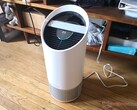Now that the COVID-19 epidemic is upon us, a lot of people will be working from home for the foreseeable future. While this might serve as a much-needed break for some people, those who must work from home will find a little solace. Contrary to popular belief, working from home isn't exactly a walk in the park. There are several factors at play that one would take for granted inside an office cubicle that does not apply to a household environment. As someone who has worked from home for the better part of the past two years, I've learned a few things from my experience. Here are some essentials that will make your WFH experience more productive. Here are some of our other work-from-home guides that you might like:
Get rid of distractions
Office environments are designed for productivity, and that's why they're mostly distraction-free. Most companies ban social networking, video streaming, and other productivity hogs on their networks. This will not be the case when you work from home. Now, you have access to the entirety of the internet, and it comes with its fair share of distractions. Contrary to what the voice in your head tells you, you generally do not need to check Twitter/Facebook/Reddit for "work." If you think you lack the willpower to do so, some browser extensions might help. Block Site on Chrome and Firefox allows you to block certain websites for specific periods. If browser extensions don't do it for you, you might have to resort to more extreme measures like blocking websites from your router.
Another source of distraction will be your phone. Now that everyone is home, a lot of people will be active on their phones for longer than usual. The only phone that should stay near you is your company-provided phone, and that too only if it is essential for work. If possible, use a different number for work-related purposes on a different phone. It's best if your personal phone stays away from you. No, switching off all notifications and Do Not Disturb mode isn't nearly enough. I'd recommend that you put your device in a drawer or another room altogether.
Create a dedicated workplace
A dedicated workspace will help you get in the proper headspace for work. This also has a lot to do with reducing the number of distractions. A quiet place with only you and your PC/laptop is better than lounging on your couch with the TV blaring in the background. If possible, pick an area of your house that has access to direct sunlight and a window. One of the disadvantages of working in an office complex is that you might not get much sunlight or fresh air, so you might as well get your dose of both while you can. It is also essential that your workspace is clutter-free. Take some extra effort to ensure that your equipment doesn't gather dust and don't leave things lying around. Treat your workspace as you would your office cubicle.
Your dedicated workspace must have only work-related elements. It means that you can't have your pets around because let's face it, they will distract you. Putting up a photo of your cat asleep next to your laptop titled "this is my WFH companion for today" might be an effective strategy to farm Karma on Reddit, but it is not a productivity hack.
Maintain a regular schedule and take breaks often
One of the biggest complaints that a lot of people have with the garden variety 9-to-5 life is that it gets monotonous. Now that you're working from home, you have a lot more breathing room, as you don't have to worry about getting ready, the commute back and forth, and so on. Some companies will have fixed hours for their employees, while others won't. If yours happens to fall under the latter, then you must keep your existing schedule. All it takes is a few nights of binging Netflix to disorient your circadian rhythm completely. An irregular sleep schedule will affect your work and make it harder for you to readjust to your scheduled working hours.
On the flip side, don't push yourself too hard. Just because the surroundings are different doesn't mean that you don't run the risk of burning yourself out. It is important that you take a few 15 to 20-minute breaks in between working hours to reset. If you're working a nine-hour shift, take two 20-minute breaks every three hours and one 40-minute to an hour-long sabbatical for lunch/dinner. Your mealtimes must remain consistent too. Eating meals at irregular hours will affect your body in the long run.
No food in the workplace
Do not, under any circumstances, eat at your workspace. Not only will it come in the way of your work, but it'll also leave a mess behind for you to clean. Besides, you don't want to end up with food particles on your keyboard. Not only is it messy, but it is also a bit of a pain to clean. Avoid aerated drinks and beverages while you're at it too. Gyms will very likely be shut down in a lot of places, so it's best if you keep those empty calories at a minimum. A cup of coffee is fine, but make sure that you don't keep it too close to your workspace. Spills are harmful, and the last thing you want is a cup of Joe rendering your computer dysfunctional. Lastly, stay hydrated. Always keep a bottle of water within your hand's reach. Your body will thank you for it.
Physical and mental well-being
Ideally, you should be practicing these even when you're working out of an office. Work is work, and it is not meant to be fun. It will tire you out, which, in turn, affects your productivity. Additionally, sitting in one place for extended periods is not ideal for your body. Usually, a fitness tracker would keep you covered in this regard. If you don't have one, set a one-hour timer on your PC with a note that reminds you to get off your chair. Some basic stretches and torso twists will be enough to get the blood pumping again. Walk around a little, refill your water bottle and take a breather. If possible, take a long gaze out of the window and focus on a distant object. It'll help reduce the strain on your eye muscles. It's also essential that you maintain a correct posture while working for extended periods. This rule applies to when you work from an office too.
Working from home means that you're (mostly) isolated from your co-workers. You'll realize rather quickly that a video conference doesn't quite have the same effect as an in-person meeting. This can be a bit disheartening for some. There isn't a one size fits all solution for this predicament. One can go about it in several ways, such as keeping in constant touch with your co-workers, increasing interaction with family and friends (only when you're off the clock), meditation, breathing exercises, motivational videos, etc. Lastly, avoid stress eating, or try to keep it to a minimum. Remember, we're all in this together and must work in tandem to ride through these tough times.
Source(s)
Own









